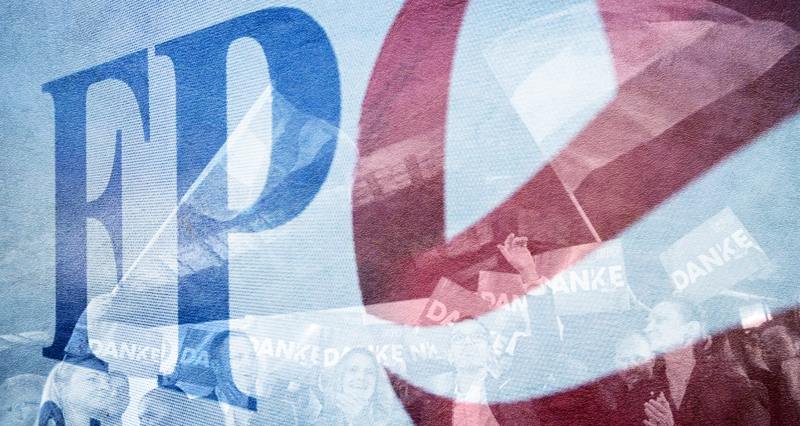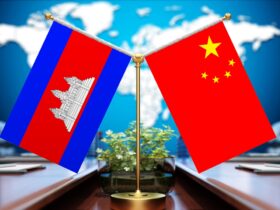The Turkish community in Austria’s capital city is placed into the spotlight ahead of the elections of April 27.
The Turkish community in Austria’s capital city is placed into the spotlight ahead of the elections of April 27.
By Kadim Ülker, From Vienna / Austria
On April 27, 2025, local elections will be held in Vienna to determine the representatives who will form the state government. Turks are once again being placed at the heart of the political debate ahead of the elections.
During the general elections held in September last year, Turks were notably absent from public debate for the first time. I interpreted that as a success of Türkiye’s former Ambassador to Vienna, Mr. Ozan Ceyhun. Then, Mr. Ceyhun completed his term and returned to Ankara.
While he was in Türkiye, the Austrian weekly news magazine Profil ran a story that mentioned him by name. The report referred to an advertisement published in a Turkish newspaper that allegedly favored the Freedom Party of Austria (FPÖ). The online news site Avusturya Gündemi claimed that support for the FPÖ among Turkish voters was on the rise. In its article, Profil included Ozan Ceyhun in the report, creating the impression that he had facilitated this alleged endorsement of the FPÖ.
Not special to the FPÖ
During his ambassadorship, Mr. Ceyhun was widely praised for ensuring that Turks were not the subjects of political debated during election campaigns. However, the report in the Profil suggested a link between the FPÖ and the former ambassador. The magazine used a photograph showing him with two FPÖ politicians as supporting evidence.
Ozan Ceyhun was known for meeting with representatives from across the political spectrum. He regularly shared these meetings on his social media platforms. He held repeated meetings with former and current leaders of the Austrian People’s Party (ÖVP), and he also met with President Alexander Van der Bellen, and photos of these meetings are publicly available. Despite this, Profil presented just two photos of him with FPÖ politicians.
Following Profil’s article, both serious and sensationalist Austrian newspapers turned their attention to Turks and the FPÖ. The less reputable outlets treated the issue like a caricature and published discriminatory and racist images and stories. More serious newspapers began questioning FPÖ politicians’ attendance at dinners during Ramadan. The Austrian People’s Party (ÖVP) was the first among them, which is now vying for votes from the voters of the FPÖ. ÖVP, as if their own members never having attended dinners during Ramadan in the past, condemned FPÖ local politicians for doing so.
Third-generation Turks
When one FPÖ politician said “Third-generation Turks have become part of our society”, this statement, and the party’s engagement with Turkish voters, sparked reactions from rival party representatives. They questioned the sincerity of the FPÖ’s outreach, especially given its long-standing history of anti-Turkish and anti-Islam discourse in nearly every election campaign. Historically, this discourse has helped boost the party’s vote share.
Now, ahead of the Vienna municipal elections, prominent FPÖ figures have begun establishing relationships with Turkish organizations and community leaders. For the first time, the party has even placed a candidate of Turkish origin, Memo Özay, on its list. With this, the Turkish community has once again been thrust into the political spotlight.
According to media reports, there are approximately 30,000 voters in Vienna who were born in Türkiye but now hold Austrian citizenship. There is no official figure for voters of Turkish descent who were born in Austria, but parties are well aware that this group is a significant voting bloc. Until now, they have primarily supported the Social Democratic Party of Austria (SPÖ) and the Greens.
As the election approaches, it’s worth noting that about 35% of Vienna’s population currently doesn’t have Austrian citizenship. Vienna’s mayor, Dr. Michael Ludwig, said that this figure is a new record.
Elections and citizenship
The publication of a pro-FPÖ advertisement by Turks, a press conference held by the FPÖ’s mayoral candidate with Turkish journalists, and the nomination of a candidate of Turkish descent by the party have all sparked significant debate in Vienna. Around the same time, a notable development was Vienna’s Mayor Dr. Michael Ludwig’s call for easing the path to citizenship for the 35% of the city’s population who currently doesn’t have the right to vote. We hope it won’t lead to suggestions that voting rights should only be granted to those who support certain parties. Nor should the easing of citizenship requirements ever be conditioned on voting for certain political parties. One recalls that the FPÖ, now placing campaign ads in Turkish newspapers, previously advocated stripping Turkish Austrians of their citizenship. It was back when they believed they couldn’t get their votes. Hopefully, parties opposed to the FPÖ will not now think to revoke the citizenship of Turkish voters simply because they choose to support the FPÖ.

















Leave a Reply